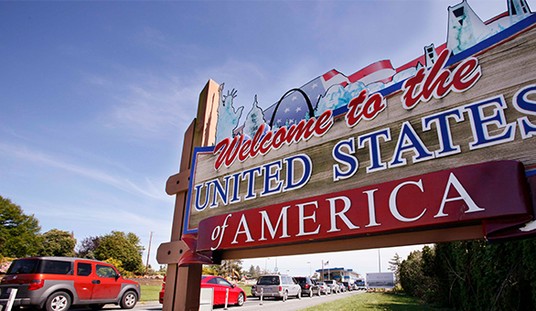Latest on the EU constitution:
The European Union’s landmark summit to agree a first constitution was plunged into gloom almost as soon as it began Friday as leaders stood their ground in a bitter battle over their nations’ voting rights.
A last-ditch meeting between British Prime Minister Tony Blair, French President Jacques Chirac and German Chancellor Gerhard Schroeder to seek a way out of the impasse brought “no breakthrough, no real movement,” diplomats said.
“The positions are a long, long way apart,” Blair told reporters. “It is important to try and get an agreement. It may well not be possible.”
You have to read down to get to the juicy stuff:
The core of the constitution debate is how much power the four biggest states — Germany, France, Britain and Italy — will wield and how much integration EU leaders can swallow.
Spain and Poland, the fifth and sixth biggest countries, are determined to hang on to voting rights that give them almost as many votes as the big four inside EU councils. Germany and France are leading the battle to get those rights pegged back.
Britain, meanwhile, is fighting to prevent Brussels having the final say on issues ranging from foreign policy to taxation.
Seeking to break the stand-off over voting rights, diplomats have suggested a reform that might not come fully into force until 2014. Poland is seeking to delay any decision on the vote question for several years.
It seems the smaller states aren’t willing to give Germany and France total dominance over the Union. We worked out a similar problem in Philidelphia over 200 years ago, by creating both a Senate and a House — giving the smaller states a disproportionate say in the Federal government.
It works here, but I’m not certain Germany or France will be willing to make a similar compromise.










Join the conversation as a VIP Member